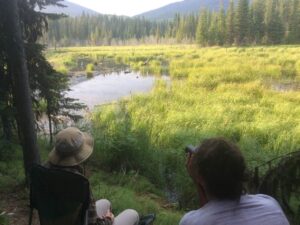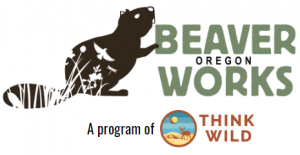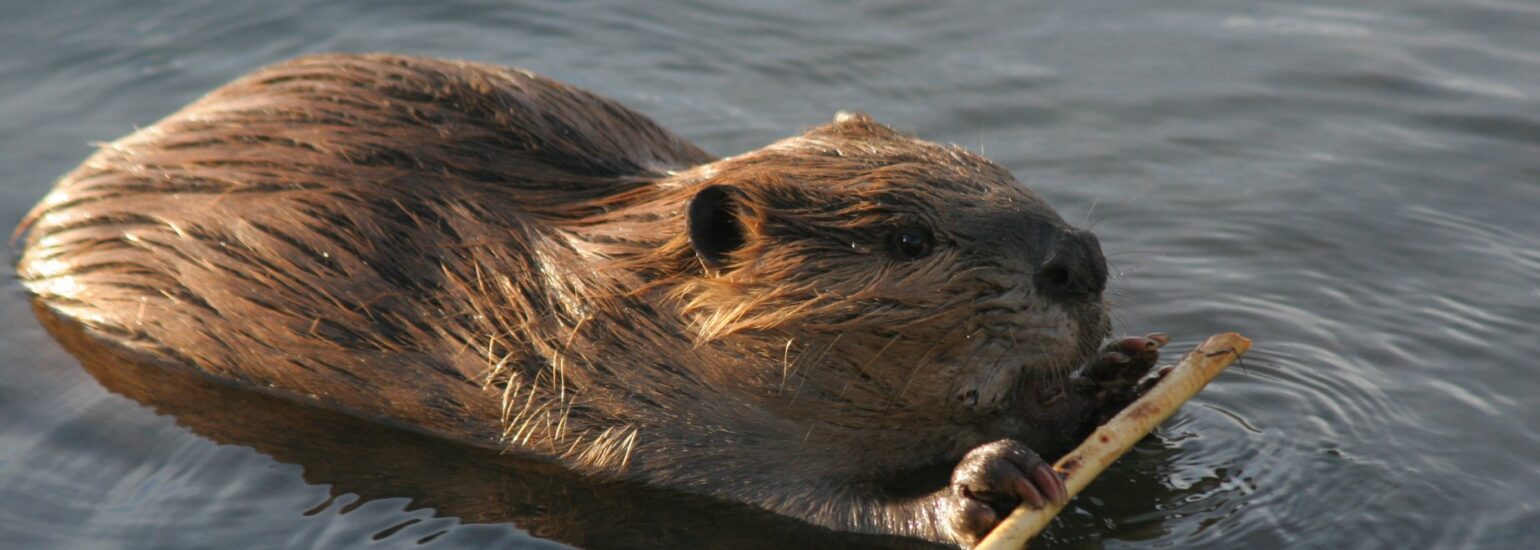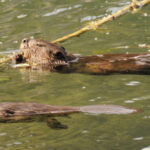House Bill 3464 – Beavers & Wildlife Protection Law
On July 27, 2023, Governor Tina Kotek signed House Bill 3464 into law. The bill’s title “relating to protecting beavers to mitigate climate change effects” changes the status of these important animals and human’s relationship to them in the state of Oregon. More than 34 environmental, wildlife, and farm groups, including Think Wild, endorsed this bill. Molly Honea, Development and Communications Coordinator for Think Wild testified in support of its passing. The consistent hard work of these interest groups to inform the general public of beavers’ crucial importance has finally paid off.
Prior to the passing of this bill, beavers could be exterminated on private lands with no regulation or monitoring. This means that under the previous regulatory framework, in place since the 1950s, exterminating a beaver on private land was analogous to killing a rat. It was legal, and you didn’t need to ask permission or document the loss in any way. Because beavers are rodents (like gophers and nutria), they were categorized as predatory animals, defined by the Oregon State Department of Agriculture as “coyotes, rabbits, rodents and birds that are or may be destructive to agricultural crops, products and activities.” But beavers aren’t predatory. Sure, these native animals damage trees, but that’s also part of the important ecological work they do. As the realities of climate change are more evident, however, it is increasingly difficult to ignore the fact that beavers and their work contribute immensely to fire resilience on the landscape and to healthier waterways for salmon runs and many other threatened wildlife.
Language is powerful, so when beavers are presented as an agricultural pest, we shouldn’t be surprised when they are seen and treated as one. Removing the “predator” label will move the management of beavers from the Oregon Department of Agriculture to the Oregon Department of Fish and Wildlife (ODFW), where they can be overseen as wildlife instead of agricultural pests. This is not only fairer to the individual animal but also the more appropriate designation for a keystone wildlife species.

This change will, through both language and practice, shift how we see and treat beavers. The effects of this bill will ripple outward, improving habitat for native species, and our region’s resilience to drought and wildfire effects, as well as serve as a catalyst for the development of strategies for landholders and land managers that, when implemented, will better serve Oregon’s human and beaver populations.
In conjunction with this change in language and policy, ODFW will adopt rules relating to the management (trapping and exterminating) of beavers on private land. Each year, they are expected to publish a publicly available report on the beaver take permits and mortality. This can be used to track not just beaver-human conflict, but also serve as a proxy for tracking beaver populations as a whole (akin to mountain lions). Population trends are fundamental to effective conservation and monitoring and this data is lacking for beavers and many common species. By understanding population dynamics, predation pressure, and other factors influencing beaver habitat occupation, we can better support Oregonians as they encounter beaver population shifts.
As with all new regulatory frameworks and permitting processes, there’s still some uncertainty about how this will play out. The bill doesn’t require permits for small forestland owners, and farmers with imminently threatened infrastructure are allowed to bypass the permitting process. Beaver Works Oregon, a branch of Think Wild, has experts on staff to help landowners work with the environment and wildlife to ensure the success of all. Our Beaver Response Team is available to consult with landholders on practical, proven techniques and resources to address challenges (for example damaged trees, flooding, blocked irrigation ditches or culverts) that can arise when sharing space with beavers. We look forward to the impact this bill will have on beavers and our ecosystems and to working with citizens of Central and Eastern Oregon as beaver ranges shift in the coming years.

By Debra Merskin and Maureen Thompson



